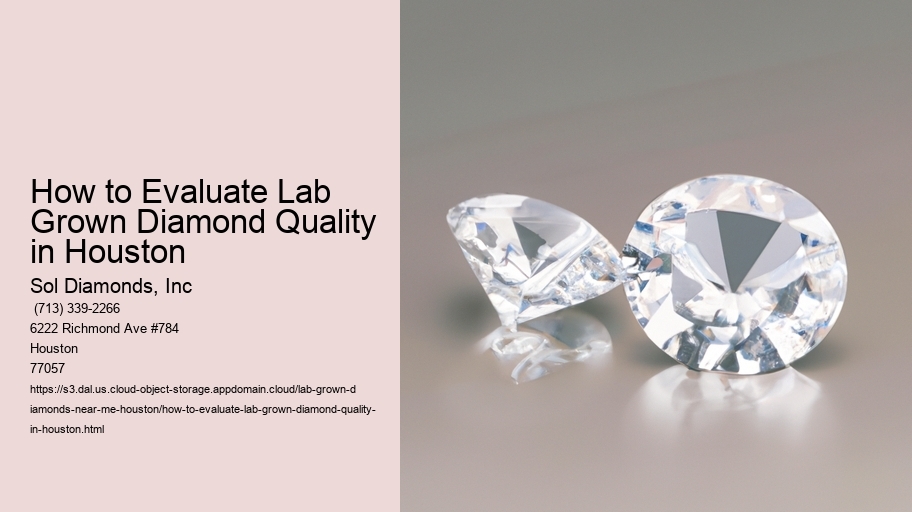When it comes to evaluating lab-grown diamond quality in Houston, it's crucial to know what to look for to ensure you're getting the best bang for your buck. How to Choose the Best Lab Grown Diamonds in Houston . Understanding the nuances of these man-made gems isn't something you want to overlook, especially since they're becoming increasingly popular as an alternative to natural diamonds. Let's delve into the key factors you should consider.
First off, don't think that just because a diamond is lab-grown, it's automatically of inferior quality. In fact, lab-grown diamonds are chemically identical to their natural counterparts. They're created using high-pressure, high-temperature (HPHT) or chemical vapor deposition (CVD) methods, which replicate the natural diamond-forming process. The end result? A diamond that's virtually indistinguishable from one mined from the earth.
When evaluating these diamonds, the 4Cs-cut, clarity, color, and carat weight-remain your best friends. You shouldn't ignore these criteria just because the diamond was created in a lab.
Cut: The cut of a diamond is perhaps the most significant factor affecting its brilliance. It's not about the shape but how well the diamond has been faceted. A well-cut lab-grown diamond will reflect light beautifully, making it sparkle just as much as a natural one. Don't settle for anything less than an excellent or very good cut grade.
Clarity: Lab-grown diamonds, like natural ones, can have inclusions or internal flaws. However, lab conditions often produce diamonds with fewer inclusions. Be sure to examine the clarity grade closely. You don't want a diamond with visible blemishes, so aim for a clarity grade of VS2 (Very Slightly Included) or higher.
Color: Diamonds are graded on a color scale from D (colorless) to Z (light yellow or brown). While some people prefer the warmth of a slightly colored diamond, most seek colorless or near-colorless stones. Lab-grown diamonds often score high in this category, but it's still essential to check. Don't accept a lower grade if you're looking for that pristine, icy look.
Carat Weight: This one's pretty straightforward-how big is the diamond? Larger diamonds are rarer and thus more expensive, whether they're lab-grown or natural. However, because lab-grown diamonds can be produced more efficiently, you might find you're able to afford a larger stone than you would if you were buying a natural diamond.
Certificates are another crucial aspect. Don't just take the jeweler's word for it; ensure your diamond comes with certification from a reputable lab, such as the Gemological Institute of America (GIA) or the International Gemological Institute (IGI). This certificate will provide a detailed analysis of the diamond's 4Cs and confirm that it is, indeed, lab-grown.
Houston, being a bustling metropolis with a thriving jewelry market, offers a wide array of options for purchasing lab-grown diamonds. However, don't let the abundance of choices overwhelm you. Take your time to shop around, compare prices, and read reviews. Visit multiple jewelers and ask plenty of questions.
Lastly, trust your instincts. If something feels off or the deal seems too good to be true, it probably is. Lab-grown diamonds should come with a fair price tag, reflecting their quality and craftsmanship. Don't be swayed by flashy marketing or pushy sales tactics.
In conclusion, evaluating lab-grown diamond quality in Houston isn't rocket science, but it does require a bit of due diligence. By paying close attention to the 4Cs, insisting on proper certification, and trusting your gut, you can confidently choose a stunning diamond that will bring joy for years to come. After all, the goal is to find a gem that not only looks beautiful but also holds its value and integrity. Happy hunting!
